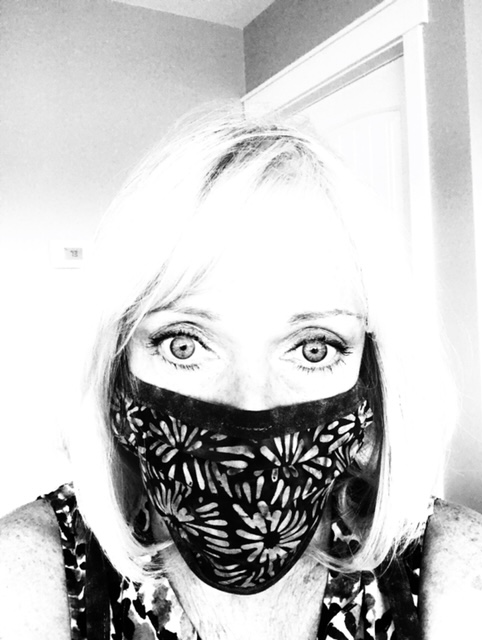I would have to say that nine times out of ten when I’m introduced to someone, they will say: “you look very familiar”. This is always followed by: where do you work? Where do you live? Are you related to …etc. I tell people I’m a twin, which is true so they automatically assume they must have seen my twin – until I tell them it’s my brother and he is much larger than me! It can be challenging to describe who we really are. I suppose I could be someone’s doppelganger, but I prefer to be known for who I really am!
This month there will be numerous Halloween parties, masquerades, and days for costumes. We will all have the opportunity to disguise our true identity and enjoy the amusement of pretending to be someone else for a while. It is much less amusing when that becomes our day-to-day existence, particularly following a brain injury.
In early days, post injury, I used to liken it to looking in trick mirrors at the circus. How could this distorted person be me? The perception we have of ourselves and others while our brains are not functioning normally can be very negative. Another term that has become very popular these days is Imposter Syndrome. Simply put, it means the inability to believe one’s success is deserved or has been legitimately achieved as a result of one’s own efforts. Months in rehabilitation and brain support groups have enabled many of us to move ahead into meaningful lives. We have regained some or most of our abilities. Yet, there are times I question if I’m actually capable of taking on a new challenge.
It was about 4 years post injury that I suffered from a major incident of Imposter Syndrome. Feeling quite confident in my recovery, I agreed to help plan a charity luncheon for an African A.I.D.S Relief organization that I was a part of at the time. This was the stimulation I so needed, and I embraced each detail with enthusiasm! However, closer to the event date, I realized I had made a mistake in the final count of guests for the caterer. As if this didn’t cause me enough anxiety at the time, someone said, “I don’t understand why you would have taken this on knowing the cognitive deficits you suffer from.” Busted!! Named a deficient imposter. The pain from those words was crippling. That toxic person is no longer in my life. We must make those difficult decisions to end unhealthy relationships if we are to be true to ourselves.
Life can become an adult version of trick or treat. If we’re brave enough to take the next step, will the door open to new possibilities or be slammed in rejection? Will we have to continually wear a mask that represents the common standard for success or are we free to be our authentic selves, warts and all and explore the possibilities that are yet to be discovered on this recovery journey?
I would say it’s the season for relinquishing those ghosts from the past. Seek resources like good counseling and finally deal with the skeletons in your closet. Most importantly, let’s not hide behind a mask. People need to hear your story. It could potentially encourage honesty, healing in relationships and a healthier perspective. Now wouldn’t that be a TREAT!
Happy Halloween



